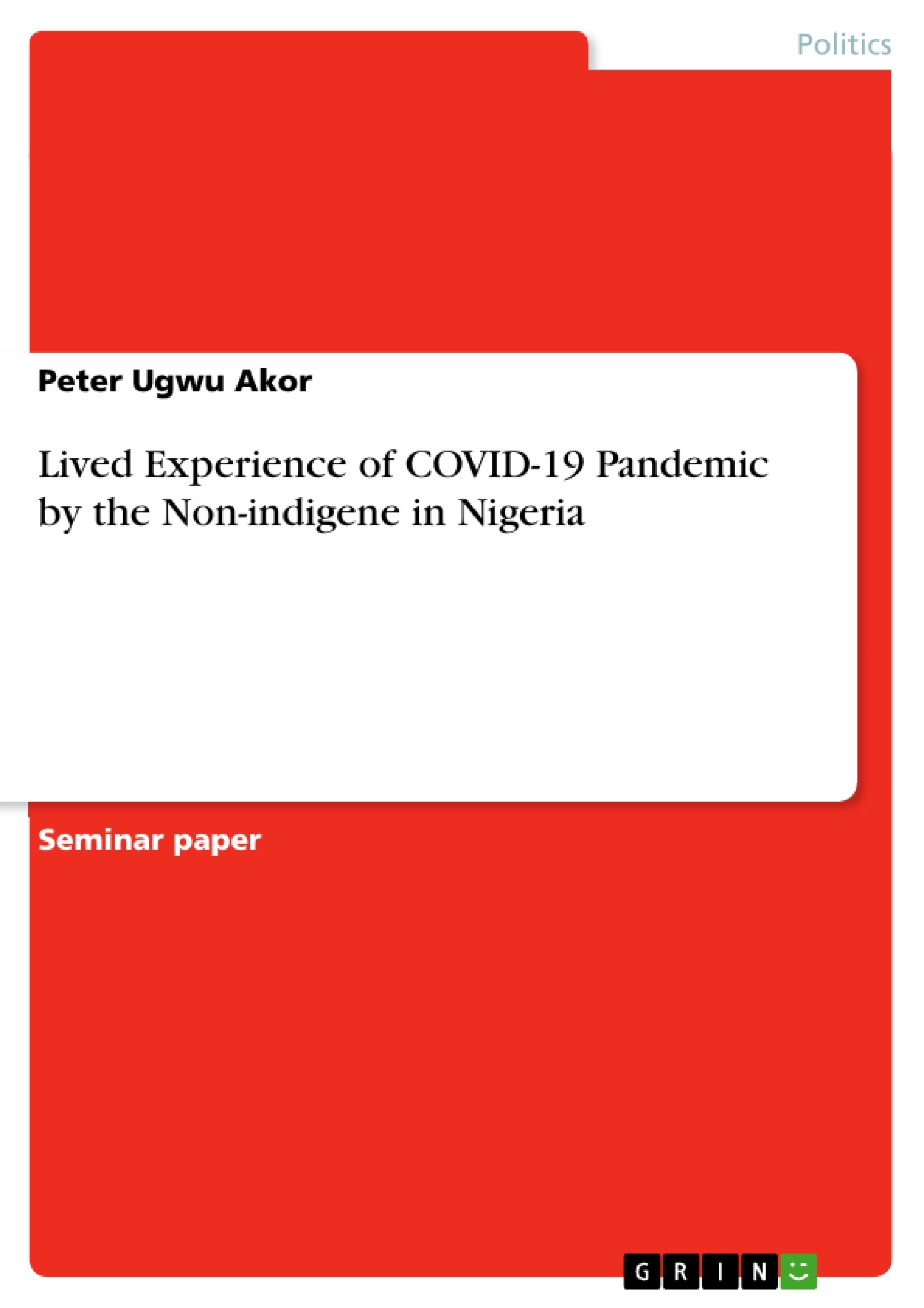What is the socio-demographic characteristics of the respondents in Okada community towards the lived experiences during covid-19 pandemic? What were the challenges of lived experience by non-indigene during the COVID -19 pandemic in Okada Community, Ovia North East LGA, Edo State, Nigeria? What were the coping strategies adopted by non-indigene in Okada community, Ovia North East LGA, Edo State during covid-19?
The 2019 new coronavirus disease (COVID-19) pandemic is a serious global public health issue. Nearly all nations have seen the virus spread since it was initially identified in Wuhan, China, in December 2019. Over 144 million cases had been documented globally as of March 3, 2021, with 3.07 million fatalities, or a case-fatality rate of 2.12% (WHO, 2021). The novel severe acute respiratory syndrome coronavirus 2 (SARS-CoV-2) that causes COVID-19 is much more widespread than previous outbreaks of coronaviruses like the Middle East respiratory syndrome coronavirus (MERS-CoV) in 2012 and the severe acute respiratory syndrome coronavirus (SARS-CoV) in 2003. The World Health Organization (WHO) has suggested a number of control measures based on the COVID-19 virus's known mechanism of transmission, including the use of masks, regular handwashing, social isolation, and lockdowns, to lessen the likelihood that people would spread the virus to one another (WHO, 2020). These preventive interventions are effective, according to the evidence currently available. Although various vaccines have lately been found and are in use, no effective medications have yet been found.
Inhaltsverzeichnis (Table of Contents)
- CHAPTER ONE
- INTRODUCTION
- 1.1 Background to the Study
- 1.2 Statement of the problem
- 1.3 Objectives of the Study
- 1.4 Research Questions
- 1.5 Research Hypothesis
- 1.6 Scope of the Study
- 1.7 Significance of the Study
- 1.8 Operational Definition of Terms
- INTRODUCTION
Zielsetzung und Themenschwerpunkte (Objectives and Key Themes)
This study aims to assess the lived experiences of non-indigenous individuals in the Okada community, Ovia North East LGA, Edo State, Nigeria, during the COVID-19 pandemic. The study aims to understand the social context in which the virus was acquired, the symptoms experienced, the available treatments, and the perceived response of the healthcare system.
- The impact of the COVID-19 pandemic on the lives of non-indigenous individuals in rural communities.
- The challenges faced by non-indigenous individuals during the pandemic, including health, social, and economic concerns.
- The coping strategies adopted by non-indigenous individuals to manage the challenges of the pandemic.
- The socio-demographic characteristics of non-indigenous individuals and their relation to their lived experiences during the pandemic.
- The implications of the study findings for health system interventions and policies aimed at managing the pandemic in Nigeria and other low-resource environments.
Zusammenfassung der Kapitel (Chapter Summaries)
- Chapter One: Introduction: This chapter provides background information on the COVID-19 pandemic and its impact on Nigeria. It outlines the research problem, objectives, research questions, and hypotheses. The chapter also defines key terms used in the study.
Schlüsselwörter (Keywords)
The study focuses on the lived experiences of non-indigenous individuals in the Okada community during the COVID-19 pandemic. The key concepts explored include the socio-demographic characteristics of the population, the challenges faced, coping strategies, and the implications of the findings for health system interventions.
Frequently Asked Questions
What does the study on non-indigenes in Nigeria during COVID-19 investigate?
The study assesses the lived experiences, challenges, and coping strategies of non-indigenous individuals in the Okada community, Edo State, during the pandemic.
What were the primary research questions of this study?
The research asked about the socio-demographic characteristics of respondents, the specific challenges they faced, and the coping mechanisms they adopted during COVID-19.
What challenges did non-indigenes face in the Okada community?
Challenges included health concerns, social isolation, economic difficulties, and navigating the local healthcare system's response to the virus.
What is the significance of focusing on a "low-resource environment"?
It highlights how rural communities and vulnerable groups manage global health crises with limited resources, providing data for future health system interventions and policies.
Which control measures were suggested by the WHO during the pandemic?
The WHO recommended regular handwashing, social distancing, lockdowns, and the use of masks to mitigate the spread of SARS-CoV-2.
- Quote paper
- Peter Ugwu Akor (Author), 2023, Lived Experience of COVID-19 Pandemic by the Non-indigene in Nigeria, Munich, GRIN Verlag, https://www.grin.com/document/1366970



